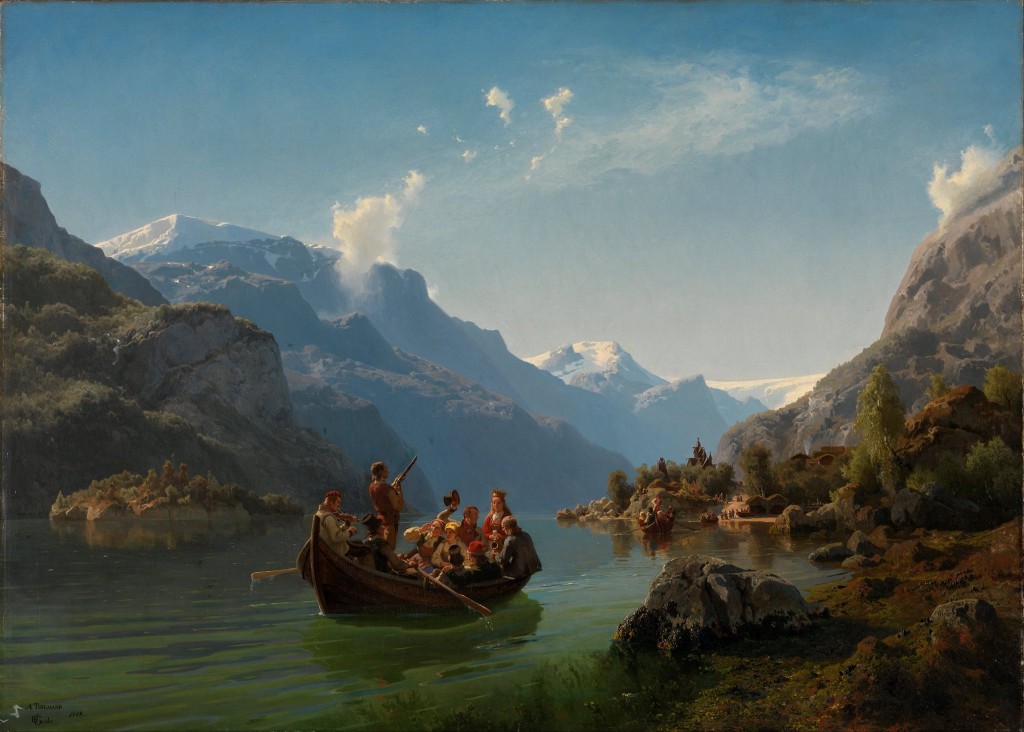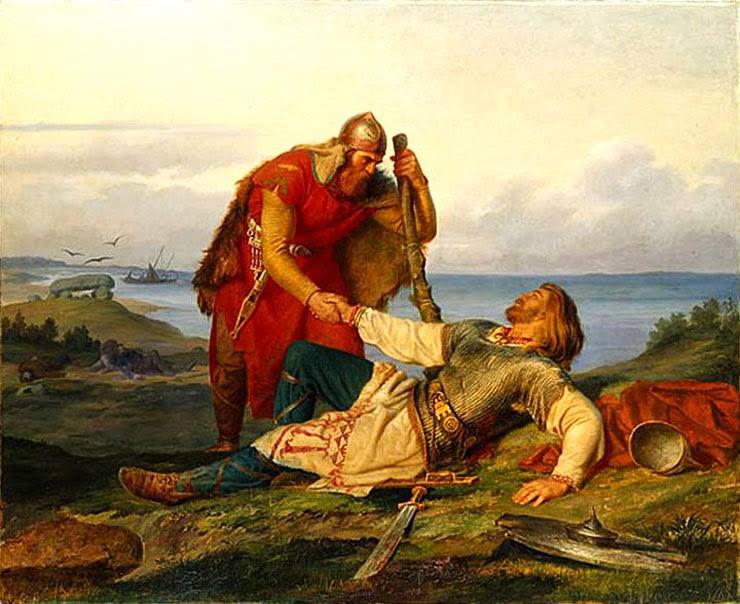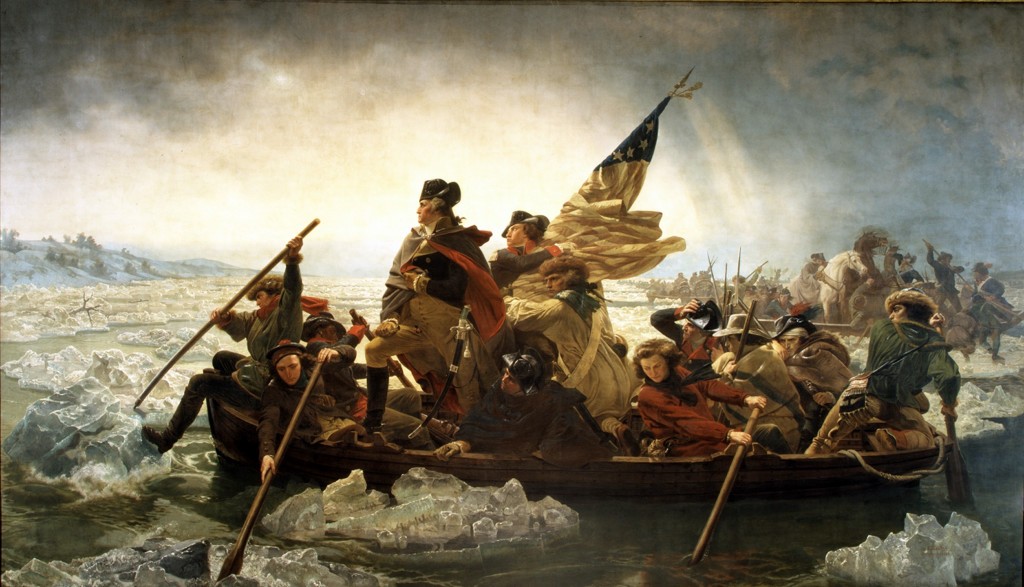The youth of today are quite possibly the most decried and despised generation in history. Millennials are regarded as a selfish, entitled generation who believe in neither country, nor God. Despite being the supposedly most educated, wealthy and free human beings to have ever lived, they are also some of the unhappiest and most chronically ill – both physically and mentally. While some attribute this unhappiness to rampant materialism, this claim is misguided. This is a generation that may have easy access to a cornucopia of consumer goods – but one that also willingly accepts tens of thousands in debt for their education; and remains steadfastly unfazed at the prospect of never owning their own home. If the goal of this generation is not wealth, duty, or faith – what is it? On the surface some may be inclined to say that there simply isn’t one – that rampant hedonism and active nihilism have become the modus operandi of today’s youth. Yet there seems in this dissolute cohort to be one unquestioned good remaining; one universally accepted truth. Travel is good. The credo of this age is summarised succinctly by the vacuous phrase: “I would rather have a passport full of stamps, than a house full of things.”
On the surface, though trite, this assertion may not seem altogether a bad one. Wanderlust has always been a part of the human spirit; the innumerable explorers of the past are testament to that. Even the indulgent holidays and vacations of today featured in history for those who could afford them, exemplified by the genteel grand tours of the English aristocracy. To a generation raised on the notion of cultural relativism, literally expanding your horizons by meeting and learning from other cultures is an undisputed positive. And equally, to a mass of rootless existentialists who believe literally this world is all that there is, it makes sense that exploring as much of it as possible should be the primary goal. Yet elevating travel in and of itself to the goal of life – to becoming an entire raison d’être – is a dangerous and ultimately unfulfilling path.
It is somewhat perplexing that travel has become the pathological obsession of the younger generation at this point in time because the prospect of modern travel could scarcely be less appealing or rewarding. This is the first generation that has grown up with perfect knowledge of the earth; with the ability to in an instant conjure nearly any image from around the globe. Every region of earth, no matter how remote, has become a hive of human activity, and has not escaped digital documentation. Every traveller of today thus travels with the knowledge they are simply trekking well-worn and safe paths. And at the same time, the ardent belief in internationalism, in cultural relativism and equality has meant that not only the destinations are tired and cliché, but the cultures upon arrival are more similar than ever. Ironically, in their restless pursuit of an escape from their own roots, the new travelling generation has remade the world in its own image – an entire world of fast food chains, coffee shops, recognisable landmarks, sanitized locations, and interchangeable populaces all adherent to the same view.
What is increasingly apparent is that this generation did not adopt travel as its mode of living by choice, but rather was forced to adopt it by circumstance. They have deluded themselves into believing they are travelling for the purpose of discovery and enlightenment, but in reality, they are not exploring but fleeing. They are fleeing from the rootless and incoherent nature of their own societies. The harsh truth is modernity has made refugees of us all. This fact becomes apparent when one observes that one of the primary destinations venerated by the new nomadic generation is Japan. Japan is omnipresent in the mind of the millennial – from anime to cosplay to the pop culture image of the Samurai and the ninja – Japan holds a sacred place in the pantheon of travel and youth culture. But the idiosyncratic nature of Japan is predicated exactly on its resistance to travel – on a long history of wariness of outsiders. The Japanese culture remains vibrant and unique precisely because, even in the face of demographic disaster, it has steadfastly refused to succumb to the itinerant world and accept migrants, refugees, and settlers. While the Japanese may travel, they also understand that a traveller must in the end, also have a home to return to.
The millennial obsession with Japanese culture is not simply a trivial desire to experience a culture and place different to their own; but symptomatic of a deeper pining for a coherent history, society and religion. The nomadic youth of today travel in distance and physical space because they have been robbed of the ability to travel back in time or upward towards a higher plane of existence. They are victims of a conscious effort to erase their collective history; to make them illiterate in the language of their own built environments. It is therefore natural that they should prefer to roam and carelessly disregard and overlook the local which they can no longer understand. While the world may be an open book to the generation of today, their own history is kept under lock and key, a forbidden knowledge guarded by the dual gatekeepers of revisionist political correctness and forceful cultural relativism. Forget your ancestors for they were not any greater than anyone else’s; nor were they great at all is the refrain of this mode of thinking.
This is the exact reverse of the circumstances the great explorers of the past set out under. Captain Cook, Christopher Columbus, and Charles Darwin all took to the sea with an unwavering understanding of who they were, and with the firm belief that their voyages were not simply exercises in moving through space, but were anchored in greater historical processes of science, philosophy and nation. It was the impetus of such people to go forth and create civilization, not simply to travel around and gormlessly spectate it. Even the decadent participants of the Grand Tour partook in it with the higher purpose of observing the civilization and beauty of the enlightened Mediterranean and bringing it home. And further to this, all these adventurers and explorers of the past did so while accepting the dangers and discomforts travel of the age entailed. Travel today is unfulfilling because it is easy – it entails no heroic battles with the elements, the limits of technology, or the unknown and the unexpected.
It is no coincidence that the generation of self-declared supreme travellers have no stomach for the true test of the age, namely space exploration. Despite the theoretical means being in abundance, no popular movement has arisen calling for mankind to traverse the stars – this kind of travel would require personal commitments and mass co-operation beyond the capabilities of the self-interested atomised traveller of modernity. It is this timidity in the face of the higher calling of the age that exposes the superficial nature of people who self-identify as living to travel. Their goal is not exploration and discovery in any real sense, but rather a self-indulgent feel good procrastination around a safe and already charted globe.
The vapid gypsies of modernity will gain no solace from their travels however. Even in the very limited goal of making the individual happy, modern travel singularly fails to deliver. Just like wealth, travel is a goal without end and with diminishing returns. The more of the globe viewed, the more an individual will be inclined to ask about their own place within it; the more of a spectator rather than a participant they will feel. It is not that travel is inherently morally bad or degrading, but simply that it is not expansive and fulfilling enough to fill the void of a true transcendental purpose. Purpose and destination are not fixed geographical points on the map to be discovered, but rather come from within. It is self-discovery rather than searching the globe that will bring about true fulfilment. It is high time that this generation reconnected with the philosophical currents of the past and began to ponder the meaning of Destination, rather than seeking new destinations in vain. It is time once again to become – Travellers with Destination.




Recent Comments